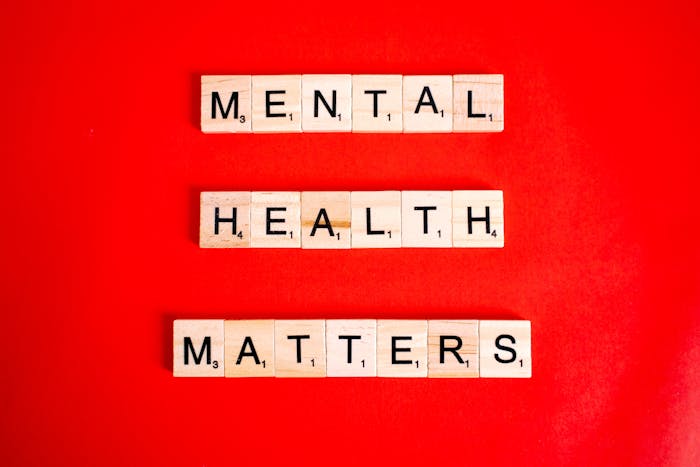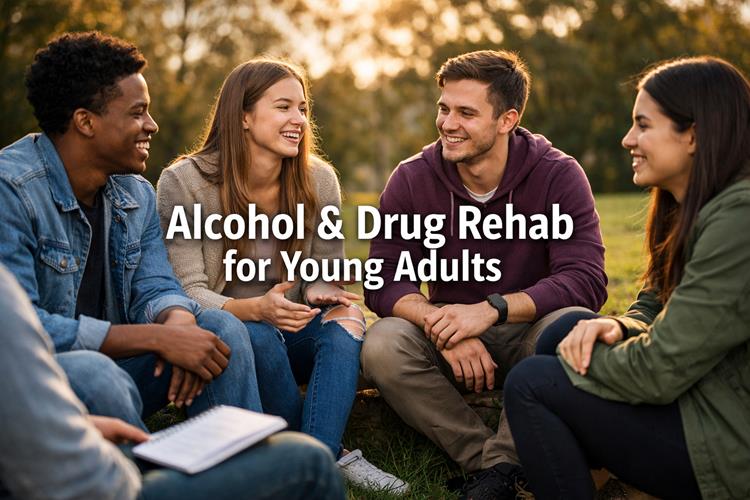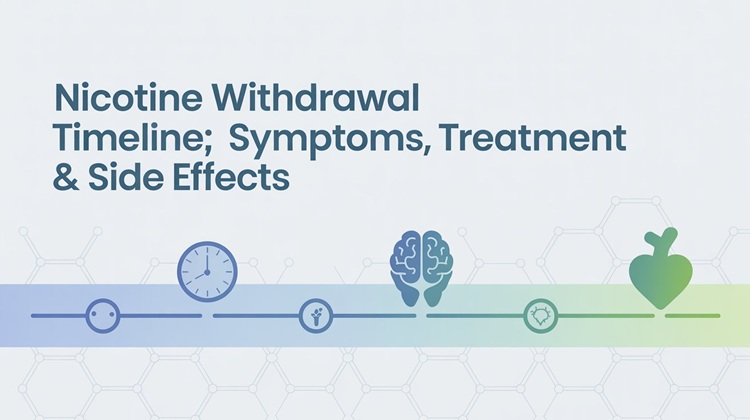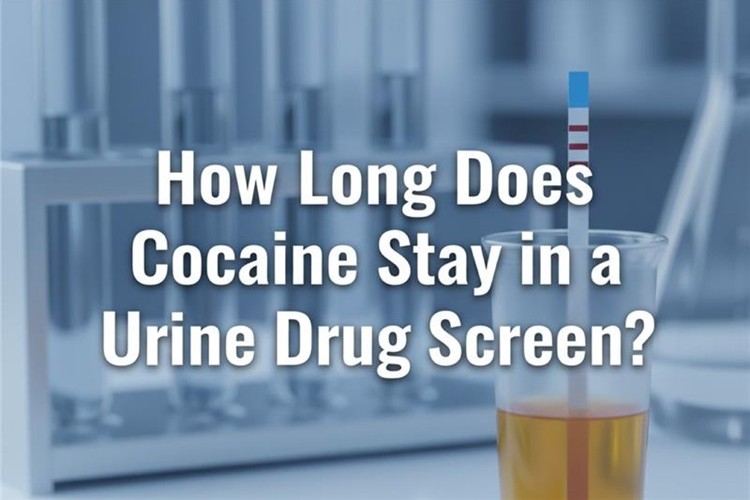The month of May serves as Mental Health Awareness Month when individuals focus on raising attention for mental wellness needs. The annual observance of May began in 1949 to establish a nationwide movement which now fights stigma while encouraging better communication and promoting healthcare services. Each year, this month creates a vital time to teach people about mental health issues and foster emotional responses while promoting active support.
This comprehensive guide covers all important aspects of Mental Health Awareness Month which includes historical background and fundamental goals and concrete steps that help you support its mission. This blog contains meaningful information suitable for mental health professionals together with caregivers and anyone interested in mental health knowledge including actionable steps for contribution.
What is Mental Health Awareness Month?
Each May during Mental Health Awareness Month, the United States observes a national campaign focused on educating the public about mental health disorders while providing support to those who have mental illnesses and trying to eliminate prejudices toward people seeking help.
Mental Health America leads the organization of this annual month-long campaign which conducts important educational activities alongside advocacy and public outreach and local community involvement. The overarching goal? Such a culture should prioritize mental wellness in addition to discussions about it.
Why Mental Health Awareness is So Important
Physical health often receives more attention than mental health since society has not resolved its misconceptions about psychological well-being and the lack of support it needs. Mental Health Awareness Month aims to:
- Normalize conversations around mental health.
- People should feel comfortable in pursuing mental health services.
- Exhibit the differences which prevent people from accessing proper mental health care.
- The general public needs awareness about the initial warning signals of mental health problems.
- All aspects of mental wellness must be incorporated into general healthy lifestyle practices.
The annual rate of mental illness among US adults reaches 20 percent indicating awareness efforts that may save lives.
Common Mental Health Conditions to Know
Learning about the usual mental health problems leads to reduced prejudice and greater support from others. Several mental health conditions frequently emerge during Mental Health Awareness Month including the following few:
- Anxiety Disorders
Anxiety disorders include Generalized Anxiety Disorder (GAD) together with Panic Disorder as well as Social Anxiety and specific anxiety-related fears known as Phobias. Anxiety disorders create in patients persistent fear or worrying which disrupts their regular activities.
- Depression
Depression stands as one of the worldwide most prevalent conditions which exceeds gloomy feelings. Depression stands as a medical condition that leads patients to experience ongoing low mood depression with dwindling interest in activities as well as total body exhaustion and thoughts that can harm themselves.
- Bipolar Disorder
People with bipolar disorder experience intense blackouts of depressive feelings followed by prolonged maniac episodes. Controlling bipolar disorder demands prolonged therapeutic and drug treatment.
- Post-Traumatic Stress Disorder (PTSD)
PTSD emerges after traumatic events cause psychological symptoms including sudden memories as well as heightened awareness and emotional being disconnection from daily experiences. Forbes states that veterans and abuse survivors and people who experienced accidents represent the main groups of individuals who face this risk.
- Obsessive-Compulsive Disorder (OCD)
Obsessive-Compulsive Disorder consists of two major symptoms which includes obsessions and compulsions. The condition causes major distress which disrupts regular functioning.
- Eating Disorders
Obesity Nervosa and Bulimia Nervosa, as well as Binge Eating Disorder, consist of intense preoccupation about food and body image, which creates severe health risks for physical and emotional well-being.

100% Confidential Support is Available 24/7
No matter what you’re going through, you’re not alone. Our dedicated team is here to provide a safe, judgment-free space where you can talk openly and honestly. Whether you need emotional support, resources, or just someone to listen.
We’re here for you—completely confidential and always respectful of your privacy. Call us today!
Recognizing the Signs: When to Seek Help
People may experience mental health difficulties that are difficult to detect by others. The list below shows typical signs that you need professional assistance, along with signs that loved ones might benefit from such help too:
- Persistent sadness, anxiety, or irritability
- Withdrawal from friends or activities
- Changes in appetite or sleep patterns
- Therapeutic substance consumption functions as a method for managing emotions.
- Difficulty concentrating or completing tasks
- Thoughts of self-harm or suicide
A mental health professional must be contacted by anyone displaying these symptoms.
Contact Palm Coast Treatment Solutions
Battling with Drug and Alcohol Addition? Remember, you are not alone and we are here to help you!
How to Support Mental Health Awareness Month
Small efforts create substantial changes in mental health awareness. The following list offers meaningful steps that everyone can take to participate:
Educate Yourself and Others
- Research mental health conditions so you can publish stigma-free knowledge through social media pages and local communities.
Wear Green
- Mental Health Awareness Month is identified by green as its official color. Bearing clothes of green color demonstrates support to others while initiating meaningful discussions.
Host a Wellness Event
- Initiate a mental wellness day initiative between institutions such as school and workplace settings. The event should include sessions about mindfulness along with stress-reducing activities and presentations from mental health professionals.
Donate or Volunteer
- Support associations with local or national status that deliver mental health assistance and crisis management services and educational materials.
Share Your Story
- When you can discuss your psychological experience with others it proves beneficial because it helps those who feel alone.
Check in on Loved Ones
- A simple yet deep question that involves asking “How are you?” People may start meaningful discussions about support because of this step.
Overcome Addiction with Palm Coast Treatment Solutions.
Book an appointment.
Mental Health and the Workplace
Workplace issues cover more than simply physical health alone. Work-related burnout and work-related stress coexist with anxiety among numerous professional groups. Employers need to take action during Mental Health Awareness Month by implementing certain measures.
- Offer mental health days.
- Organizations should give their workers access to professional Employee Assistance Programs (EAPs) for support services.
- Host virtual mindfulness sessions
- Promote an environment where people feel safe and secure psychologically
Employee support systems create positive impacts on productivity together with better employee engagement and improved well-being of staff members.
The Role of Social Media in Mental Health Awareness
Through platforms including Instagram and TikTok as well as YouTube users now rely on different methods to discuss mental health concerns. During May, hashtags like #MentalHealthAwarenessMonth, #EndTheStigma, and #YouAreNotAlone trend globally.
Use social media to:
- Amplify awareness campaigns
- Share educational infographics
- Highlight personal stories of hope
- The organization should advocate for all available hotline and helpline accessibility.
People should verify their content sources before they accept social media information and seek to avoid fake news.
Overcome Addiction with Palm Coast Treatment Solutions.
Book an appointment.
Mental Health Resources Everyone Should Know About
Here are some trusted mental health resources to keep on hand or share:
- National Alliance on Mental Illness (NAMI): nami.org
- Mental Health America (MHA): mhanational.org
- SAMHSA’s National Helpline: 1-800-662-(4357) HELP
- Crisis Text Line: Text HOME to 741741
These organizations offer confidential support, educational materials, and referral services.
Mental Health Policy and Advocacy
The time of Mental Health Awareness Month promotes policy reforms as well as educational initiatives. Advocates are working toward:
- Improved access to care
- Parity between mental and physical health insurance coverage
- Increased mental health funding
- The need for enhanced psychological expertise training serves both emergency personnel and educational staff members.
There are three main ways you can get involved, starting with signing petitions as well as getting in touch with your representatives and obtaining membership in local advocacy groups.

Overcome Addiction with Palm Coast Treatment Solutions.
Book an appointment.
Seeking Assistance for Mental Health in Palm Coast
Mental Health Awareness Month made people understand that mental wellness should be seen as fundamental instead of exclusive to only privileged individuals. All that you build as a success and all the support you offer other people along with your present prosperity depend on your conscious decisions and vocal expressions. A future society needs to create an understanding that support-seeking represents power because this system delivers medical services to everyone and recognizes mental health treatment as vital as physical care.
Someone who is fighting with their mental wellness can find help without facing it independently. Through evidence-based processes, Palm Coast Treatment Solutions provides caring medical assistance to patients facing mental health challenges along with dual disorders. Contact Palm Coast Treatment Solutions right now to start your healing journey toward hope. Mental health requires your care during each month and at all times of the year.






















